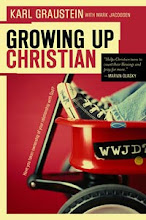Here is another section from chapter 9 of my book.
The story of Joseph, recorded in Genesis chapters 37-50, illustrates how God is firmly in control even when the difficult circumstances of life may indicate otherwise. Joseph learned that God controls everything, despite Joseph’s wrangling with pride, being sold into slavery by his brothers, suffering the lies of Potiphar’s wife, rotting in prison, being forgotten by the cupbearer, and enduring years of famine in Egypt. Joseph powerfully testifies to God’s sovereignty when he says to his brothers, “You intended to harm me, but God intended it for good to accomplish what is now being done, the saving of many lives.” (Genesis 50:20)
Despite incredibly trying circumstances over many years, Joseph learned that God is faithful, that his ways are the best ways, and that his purposes will be accomplished. He learned to trust God.
I’m sure my attitude would have been quite different from Joseph’s. I probably would have doubted God all along the way, struggling with anger and the temptation to turn my back on God. I can learn a lot from Joseph’s example.
Can you imagine the faith and excitement Joseph experienced when he became second in command of all of Egypt? Can you picture his face when he realized his family was standing in front of him and he had opportunity to sell them the food they needed to survive? Joseph must have laughed with joy as he finally understood God’s purpose and plan. He must have cried tears of gratefulness as he saw how God had used him to save so many, including his own family (the future nation of Israel), from starvation. By persevering in times of trials, Joseph learned what it meant to trust God.
The story of Joseph, recorded in Genesis chapters 37-50, illustrates how God is firmly in control even when the difficult circumstances of life may indicate otherwise. Joseph learned that God controls everything, despite Joseph’s wrangling with pride, being sold into slavery by his brothers, suffering the lies of Potiphar’s wife, rotting in prison, being forgotten by the cupbearer, and enduring years of famine in Egypt. Joseph powerfully testifies to God’s sovereignty when he says to his brothers, “You intended to harm me, but God intended it for good to accomplish what is now being done, the saving of many lives.” (Genesis 50:20)
Despite incredibly trying circumstances over many years, Joseph learned that God is faithful, that his ways are the best ways, and that his purposes will be accomplished. He learned to trust God.
I’m sure my attitude would have been quite different from Joseph’s. I probably would have doubted God all along the way, struggling with anger and the temptation to turn my back on God. I can learn a lot from Joseph’s example.
Can you imagine the faith and excitement Joseph experienced when he became second in command of all of Egypt? Can you picture his face when he realized his family was standing in front of him and he had opportunity to sell them the food they needed to survive? Joseph must have laughed with joy as he finally understood God’s purpose and plan. He must have cried tears of gratefulness as he saw how God had used him to save so many, including his own family (the future nation of Israel), from starvation. By persevering in times of trials, Joseph learned what it meant to trust God.






